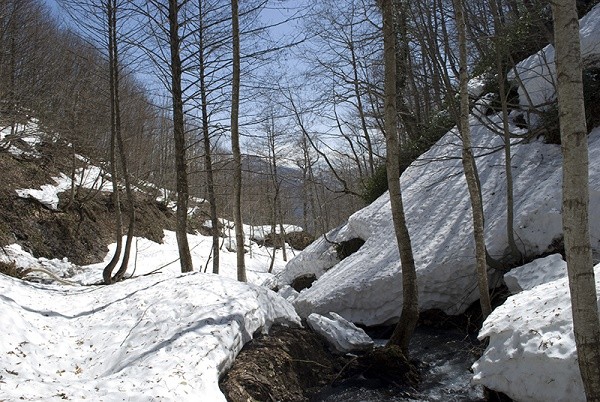A new study reveals how winter snowpack rates has been on the decline in the northern hemisphere where this could lead to an alarming water shortage, affecting 2 billion people who need snowmelt for their water supply.
Snowmelt water is essential for ecosystems to thrive including communities, cities and agriculture where researchers from Columbia University reveal how this important snowmelt resources may soon disappear.
Due to different rates of melting snowpacks, climate scientists predict that this can disturb the flow of water resources as some regions are more likely to experience increasing rainfall and snowfall due to climate changes.
In this new study, the team identified drainage basins in the northern hemisphere that are dependent on snowfall which are now becoming at risk of decline in this century. California's farmlands including war torn regions in the Middle East are the most affected of this water shortage by 2060, based on data gathered on current water supplies.
According to lead author of the study, Justin Mankin of Columbia University, this event will urge water managers from all over the world to intensively prepare for a future where snow reservoirs could no longer exist. The team estimated and predicted the possible consequences of reduced snowpack, in relation to the amount of people who rely on snowmelt water.
Researchers investigated 421 drainage basins where they found 97 of them are supplying water to at least 2 billion people where they are at two thirds at risk of declining.
In particular, the Shatt al-Arab basin that supplies most of the Middle East that includes Syria and Iraq and also the Ebro-Duero basin located in Portugal, Spain and southern France along with northern and central basins in California, are the most hard hit regions of climate changes.
Mankin explains how this snowpack is crucial as it is capable to form its own reservoir however, the effects of reduced snowpack is varying in different regions.
Snowmelt is part of an important water source cycle especially in mountain chains, and when this accumulated snow melts, it becomes a seasonal source for water as it gradually melts and flows into lowlands in spring and summer, when human demand is at its peak. However, researchers say that climate change and global warming are disrupting this cycle.
This new study is published in the journal Environmental Research Letters.



























